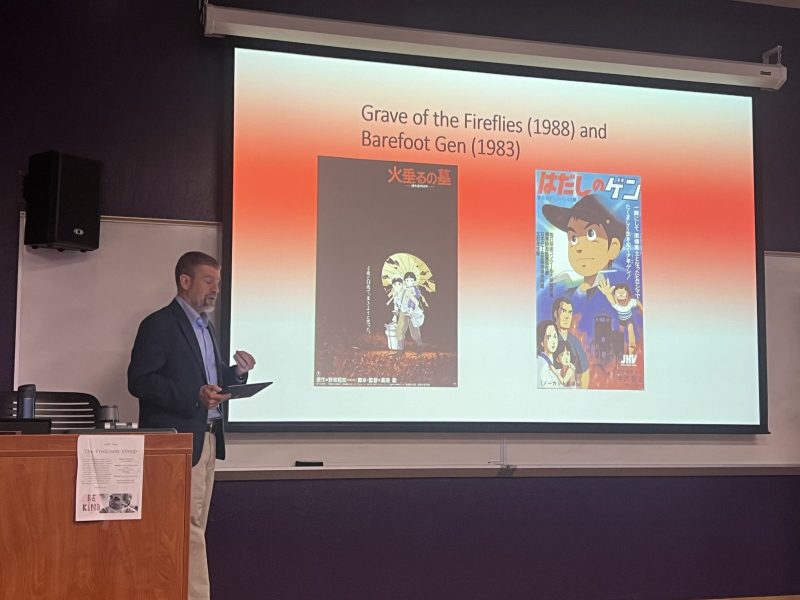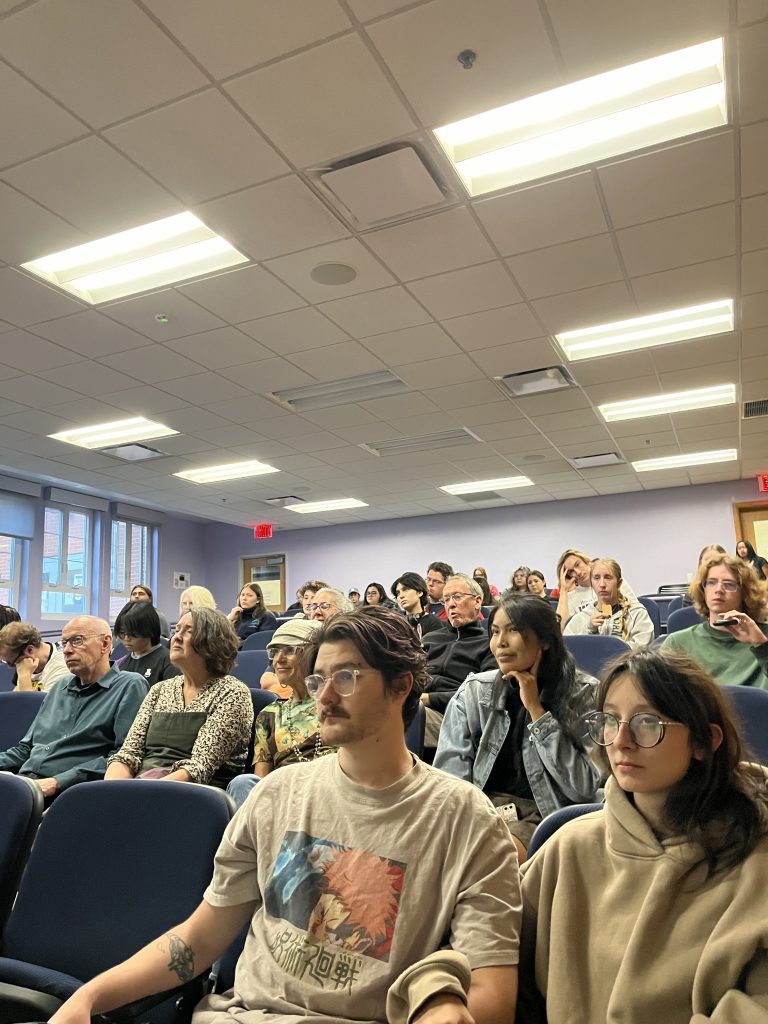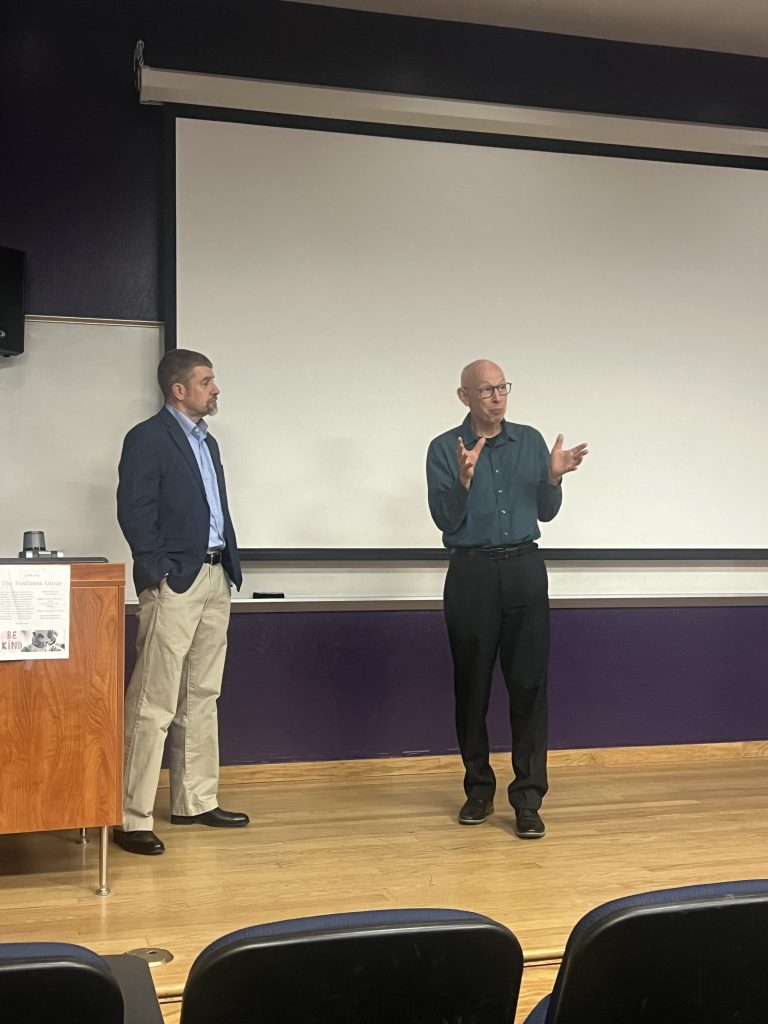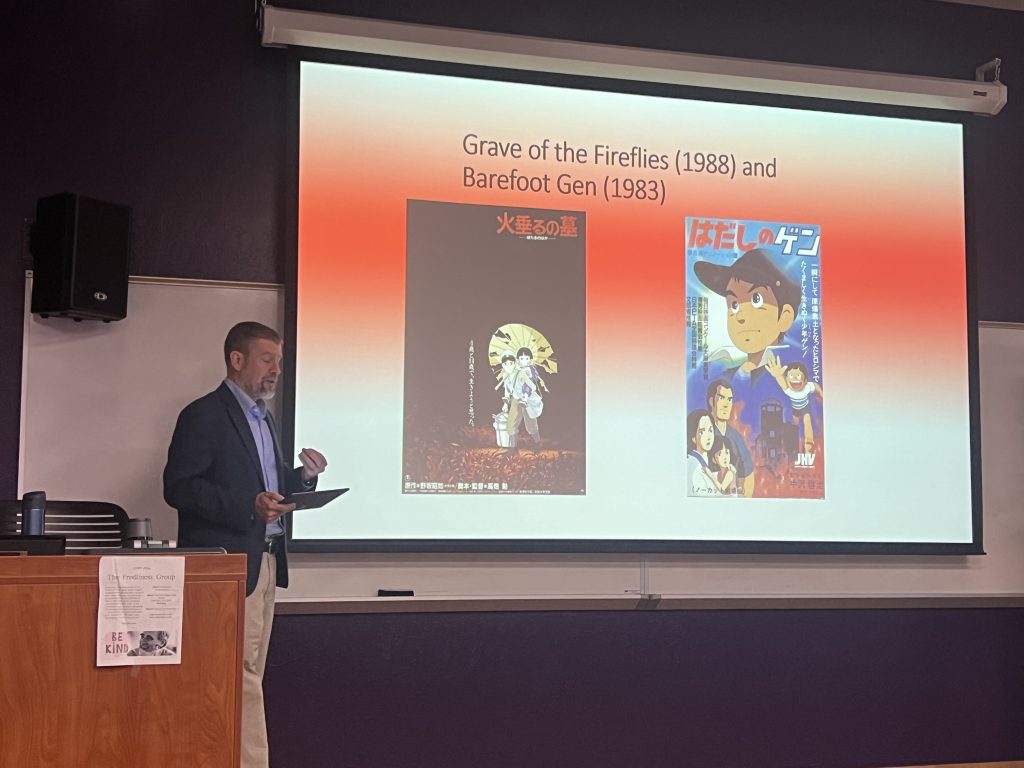Memories, Hauntings, Warnings: Anime and the Nuclear Holocaust
On the morning of Friday 11th, as I was listening to the worrying coughs of my outdated coffee maker struggling to produce my necessary morning fix, I was sorting out my impressions of the event held the night before: the lecture on and screening of the anime “Barefoot Gen” (1983), a manga author Keiji Nakazawa’s semi-autobiographical narrative of a young boy navigating the immediate aftermath of the atomic bombing of his hometown of Hiroshima. I had been a tad apprehensive whether the difficult topic and graphic imagery might deter some of our audience, but I was pleasantly proven wrong by the impressive attendance and lively discussion. Pondering this, I opened my laptop to check the latest news, and the very first title I saw read: “Japan’s Nihon Hidankyo Wins Nobel Peace Prize.” Indeed, this year’s Prize was awarded to the non-profit organization founded by a group of hibakusha (a Japanese term for the survivors of the atomic bombings of Hiroshima and Nagasaki), who had been working relentlessly for decades to raise awareness of the danger of nuclear weapons. I was elated that our event proved so timely, but also reminded that the threat of nuclear holocaust has become once again a topic of global anxiety. Art and community give us space to wrestle with these anxieties.
This is why we launched the biannual series Let’s Anime! which focusses on the works of Japanese animation and themes and topics taken on by the genre. Our inaugural event, in the spring of 2023, discussed the origins of the genre, and showcased the first episode of what is considered to be the first anime production in the contemporary sense of the word, Osamu Tezuka’s “Astro Boy” (1963). The second event featured a lecture by Dr. Christopher Smith on the Kabuki (a traditional Japanese theater form) adaptations of anime, while the third installment gathered a panel of NAU faculty from the departments of Communications, Global Languages, and Engineering to discuss Hayao Miyazaki’s “The Wind Rises” (2013), a fictional biography of the aeronautical engineer Jiro Horikoshi.
On Thursday evening, after the audience grabbed some delicious Japanese snacks and settled in their seats, we began with the introductory lecture “Forgetful Cinematic Memories of War: Barefoot Gen and Grave of the Fireflies,” presented by Dr. Paul Droubie, an historian of modern Japan whose research focuses on the topics of nationalism and memory. In his talk, Dr. Droubie questioned the very concept of memory, especially as it pertains to the painful memories of war. The themes explored were the complex and complicated positionalities one assumes (individually and/or collectively) as perpetrator, victim, and survivor; the ways in which people negotiate uncomfortable memories and create palatable ones; the ways in which we, productively or less so, deal with memory, trauma, and legacy of war and destruction.
During the screening I could hear emotional reactions like laughter, shock, and tears from the audience. The film masterfully plays up the childhood innocence portrayed through the interactions between the 6-year-old protagonist Gen and his foster brother Ryuta as they struggle to make sense of the horror surrounding them. One of the most beloved and critically acclaimed anime, “Barefoot Gen” is a story of horror and suffering, but also one of hope and resilience, and the triumph of the human spirit.
The evening concluded with a vibrant and thought-provoking discussion between Dr. Droubie and the largely student audience, moderated by Dr. Bjorn Krondorfer, Director of the Martin Springer Institute. Incidentally, on Monday, October 7th, MSI hosted a fascinating talk by Dr. Melanie Arndt of German Historical Institute, titled “The Children of Chernobyl.” The two events came together to present a comprehensive picture of the risks, dangers, and consequences of unchecked nuclear power, and hopefully instigate further discussions on this crucial and timely topic.
Note: The Let’s Anime! series takes place each semester and is sponsored by the Department of Comparative Cultural Studies. The Thursday’s event was generously co-sponsored by the Martin Springer Institute.



